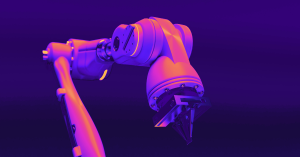Dejan Mircetic is a scientific researcher at the Institute for Artificial Intelligence of Serbia, where he currently works on projects related to the application of AI solutions to business and industry problems. Established in March 2021 by the Serbian government, the Institute for Artificial Intelligence of Serbia brings together AI enthusiasts – scientists, researchers, and industry experts – dedicated to the research of AI.
In an interview with The Recursive, Mircetic talks about how commercialization can fuel technological progress in AI, the intersection between scientific research and practical implementation, the application of AI in various fields, and much more.
The following interview was conducted as a part of The Recursive’s “State of AI in CEE” report. Download the full report with insights from 40+ experts and an analysis of 900 AI product companies from CEE here.
The Recursive: How do you see the intersection between scientific research and the commercialization of the industry right now?
Dejan Mircetic: The industry’s commercialization not only provides the necessary funds and resources to continue cutting-edge research but also serves as a feedback loop, highlighting real-world challenges that require innovative solutions. This synergy propels both scientific discovery and entrepreneurial ventures forward.
However, it’s crucial that as we stride ahead, the integrity of research remains uncompromised, and the commercial benefits are balanced with ethical considerations. In essence, the blend of pure science and its commercial potential is what will shape the future of AI and the broader tech industry in Central and Eastern Europe.
What are the current challenges or pain points in industries across the CEE that AI can address or solve?
One prominent challenge is the modernization of legacy systems, especially in manufacturing and public services. AI can help streamline operations, optimize supply chains, and predict maintenance needs. Another pressing concern is the efficient utilization of resources in agriculture. Advanced AI models can assist in precision farming, enabling farmers to use water, fertilizers, and pesticides more judiciously, thereby enhancing yield and sustainability.
What are the potential risks and challenges associated with the adoption of AI in the industry?
The adoption of AI in industry, while offering tremendous benefits, brings with it several risks and challenges. One of the most pressing concerns is ethical considerations. As AI systems make decisions, there’s a potential for biases, especially if the data they’re trained on is not representative or contains inherent prejudices.
This can lead to unfair or discriminatory outcomes in sectors like finance, healthcare, or recruitment. Another challenge is the potential loss of jobs. Automation through AI might lead to job displacement in certain sectors, necessitating a significant focus on upskilling and reskilling the workforce.
Then, there’s the matter of data privacy. As AI systems often rely on vast amounts of data, ensuring that personal and sensitive data are protected and not misused becomes paramount.
What are your personal concerns when it comes to the ethical implications of AI in your particular area of research?
In my work with time series forecasting and supply chain analytics, the ethical implications of AI weigh heavily on my mind. One primary concern is the potential misuse of predictive data, which could lead to biased decision-making, especially if the underlying data is not representative or has inherent biases.
Furthermore, as supply chains inherently involve multiple stakeholders, the transparency of AI-driven decisions becomes paramount. Without clear communication of how certain predictions are made, there could be a lack of trust among partners or even unintentional favoring of one entity over another.
How would you evaluate the availability and quality of talent with the necessary AI skills in Serbia and the region?
Evaluating the AI talent pool in Serbia and the broader CEE region, it’s clear that there’s a rich reservoir of skilled individuals. Historically, this region has a strong foundation in mathematics, engineering, and computer science, providing an advantageous starting point for the development of AI expertise. Institutions of higher learning in Serbia have been progressively introducing and updating AI and data science curriculums, which is a testament to the growing talent base.
However, while there’s an abundance of raw talent, there remains a gap when it comes to specialized skills and hands-on industry experience. In the AI domain, businesses and research institutions are looking for expertise in areas like time series forecasting, deep learning, natural language processing, and computer vision. But beyond technical skills, there’s an increasing demand for professionals who can navigate the ethical and societal implications of AI, emphasizing the need for interdisciplinary training.
Which are the top AI specializations and skills in Serbia according to your findings so far?
In my research within time series forecasting and supply chain analytics in Serbia, several AI specializations and skills have emerged as prominent. First and foremost, expertise in deep learning, particularly recurrent neural networks (RNNs) and Long Short-Term Memory (LSTM) networks, is highly sought after due to their proficiency in handling sequential data like time series.
Machine learning model interpretability is another crucial area. As supply chains can be complex and involve multiple stakeholders, understanding and explaining AI-driven decisions is essential to foster trust and collaboration. Additionally, optimization techniques, especially those related to nonlinear programming and constraint optimization, are crucial as they directly impact supply chain efficiency. This ties closely with skills in operations research, which is integral to many supply chain problems.








